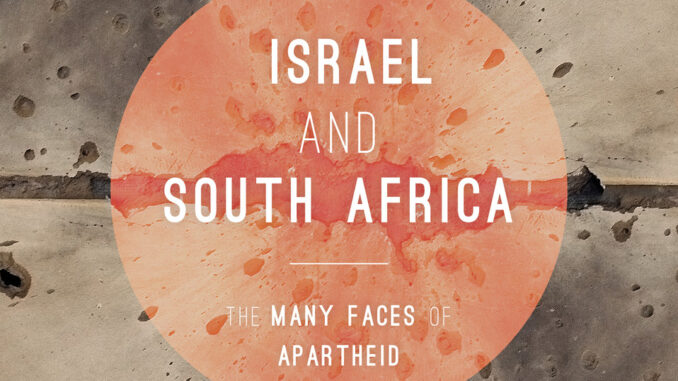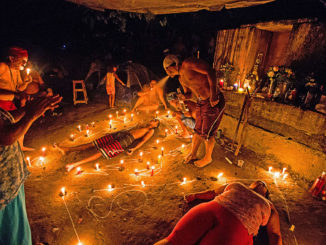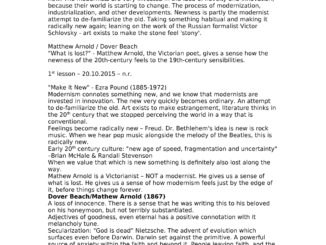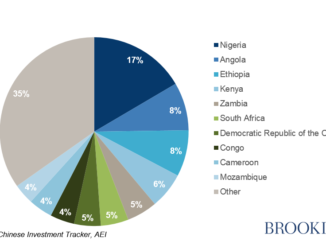
With Israelis and Palestinians locked in a seemingly intractable conflict in which both peoples have legitimate historical and biblical claims to the same land and shared aspirations for Jerusalem as their capital, imitation of post-apartheid South Africa may be the best and perhaps only feasible means of establishing lasting peace in the Middle East. Post-apartheid South Africa is especially relevant since Israel has significantly changed the demographic nature of large swaths of the occupied territories (the West Bank, East Jerusalem, and Gaza) due to construction of Jewish settlements and because it presently bears a striking resemblance to the South Africa of 1948-1994 (apartheid was established 13 years prior to South Africa’s independence from Great Britain) before universal suffrage was introduced. The similarities and differences of post-independence South Africa (1961-1994) and Israel (1948-present), the effectiveness of sanctions and ultimate transformation of South Africa into a model state, and what the future can hold for the future Israel are discussed below.
South Africa: Apartheid / Israel: Zionism – A Neutral Assessment:
Hendrik Verwoerd (1901-1966) conceived the system of apartheid or segregation of races to ensure political and economic power remained in the hands of the minority white (notably Afrikaners sometimes referred to as “Africa’s only white tribe” who trace their African roots back to 1659 when the Dutch first settled at the Cape of Good Hope, which at the time was free of indigenous peoples who at the time dwelled deeper in the African interior) population since under a unified, multiethnic state, they would have been politically overwhelmed by the black majority who aspired for political representation and proportionate power.
Under apartheid, blacks were assigned citizenship to one of ten tribal-based, self-governing homelands linked loosely together for economic reasons while state education, medical care and other services were segregated. Consequently, blacks as non-citizens were unable to participate in South African elections and had little influence over the inferior services they received. Per A.J. Christopher, Partition and Population in South Africa (The Geographical Review, Vol. 72, No. 2, American Geographical Society, New York, April 1982), the South African government justified apartheid claiming “only a multiplicity of state identities [was] possible and that the partition… [was] essential for the political and cultural well-being of South African inhabitants.”
Theodor Herzl (1860-1904) is credited with creating Zionism, a movement aimed at creating a Jewish homeland in the Middle East (to end the 2000 year-period of Jewish diaspora) in response to anti-Semitism, anti-Jewish pogroms in the Russian Empire and the Holocaust perpetrated by Nazi Germany. It ultimately led to the establishment of modern Israel in 1948. Similarly, political and economic power in Israel is consolidated in Jewish hands with Arabs [notably Palestinians)/non-Jews (notably Christians and Muslims] having limited political representation.
To establish the modern Jewish homeland, Jewish peoples from around the world were encouraged to settle in the Middle East (under the slogan “A land without a people, for a people without a land”[1]) in spite of the presence of indigenous Arabs/non-Jews beginning in the late 19th century. Many indigenous Palestinian Arabs were expelled or fled just before and after Israel was established in 1948 (about 25% of the refugees were dislocated prior to the formal re-establishment of Israel) and in the aftermath of the 1967 war (estimated to be between 700,000-800,000 and 120,000-170,000, respectively). Zionists justify their movement with the argument that their ancestors had occupied the lands comprising modern Israel based on historical and biblical precedent.
Whose Land is it Anyway?
The land comprising Israel and the occupied territories was originally inhabited by an Afro Asiatic people called Canaanites who first arrived from Arabia at around 4000 BC with a second wave of Afro Asiatic peoples sweeping into the area between 2800-2600 BC.
The first Israelites led by Abraham did not arrive to the area comprising the Holy Lands until approximately 1800 BC upon which time they forcibly pushed the indigenous peoples, (likely Babylonians based on a letter written to the Egyptian pharaoh complaining about “troublesome invaders” from “all those tribes of land-hungry nomads (‘Hebrews’) who were attracted by the wealth and luxury of the settled regions, and sought to appropriate it for themselves” per Canaan (Fact Index)) aside.
From the Israelite perspective, they justifiably conquered Canaan because the land had been promised to them by God as is stated in Genesis 17:7-8: “And I will establish my covenant between me and thee and thy seed after thee in their generations for an everlasting covenant, to be God unto thee, and to thy seed after thee. And I will give unto thee, and to thy seed after thee, the land wherein thou art a stranger, all the land of Canaan, for an everlasting possession; and I will be their God.”
With that said, the seed of Abraham consists of Jews, Christians, and Muslims. Abraham’s son Isaac, later called Israel, is considered to be the ancestor of Christians and Jews while Ishmael, Abraham’s eldest son, is considered to be the ancestor of Muslims.
Although, based on Genesis 21:10, Sarah, Abraham’s wife convinced him to disown his eldest son (under malicious pretenses due to the fact that Jews based on oral and written tradition currently view Ishmael as “wicked (though he did no wrong) but repentant” to benefit her natural born son) – “and she said to Abraham, ‘Get rid of that slave woman and her son, for that slave woman’s son will never share in the inheritance with my son Isaac” she had no legal basis. Under Mesopotamian law of the land, Ishmael was considered to be Abraham’s legal heir.
Simply put, the root of the Middle East conflict is based on competing claims regarding Abraham’s rightful heir. Jews and generally most Christians view Isaac as Abraham’s rightful heir in direct dispute with Muslims who place Ishmael in this position based on legal precedent.
In reality, if Genesis 17:8 is to be taken literally as the word of God, the land was promised to ALL of Abraham’s descendants – thus Isaac and Ishmael and all of their descendants are divine heirs. Consequently, the land has been occupied during different stages of history by Jews, Christians, and Muslims. With each having legitimate historical and biblical claims to the same land, the only practical option is for it to be shared.
Partition vs. Unitary Multi-ethnic State:
Starting in 1986 (after the minimal effectiveness of the Sullivan Principles that had been enacted in 1977 to integrate U.S. corporations doing business in South Africa with the anticipation that integration would eventually carry over to the country’s society as a whole), when the United States joined the international community in imposing economic sanctions on South Africa to bring an end to apartheid, creation of an Afrikaner homeland in the western third of the country (consisting of Pretoria, Port Elizabeth, and Cape Town) and adjustment of homeland boundaries to give blacks a greater share of natural resources and thus enhance their economic viability were among the options considered. The black majority led by the African National Congress (ANC) rejected such partitions arguing, per Knolly Moses, Apartheid’s Foes: Who’s Who in South Africa (Emerge, Vol. 1, Issue 5, March 1990) “South Africa belongs to all who live in it, black and white, and that no government can justly claim authority unless it is based on the will of the people.” Likewise, Nelson Mandela (b. 1918) recipient of the 1993 Nobel Peace Prize who was elected President of South Africa in 1994, reiterated ANC demands of “one person one vote in a unitary state” during a February 15, 1990 interview on Johannesburg Television Service when discussing negotiations with then President F.W. de Klerk (b. 1936) of the ruling National Party.
Two-State Solution: Untenable
With massive Jewish settlement construction over the last three decades in the Occupied Territories, continued Judaization of East Jerusalem, and demographic realities, a two-state solution is no longer tenable since any Palestinian nation is likely to be non-contiguous or barely contiguous at best and economically dependent similar to black homelands established by apartheid South Africa. Furthermore, even if a viable two-state solution was implemented today, it would only delay the inevitable when Palestinian Arabs would outnumber Israeli Jews, which in the words of then Israeli Prime Minister Ehud Olmert (Kadima) (b. 1945) during a 2007 interview, would lead to “‘a South African-style struggle for equal voting rights’ in which case ‘Israel would be finished'”[2] after enduring increasing isolation and economic damage from likely international sanctions aimed at compelling implementation of universal suffrage, both of which could lead to Jewish emigration.
Based on current birthrate trends, Palestinian Arabs are expected to reach population parity in the territory comprising Israel and the occupied territories by 2016 per Iqbal Tamimi, Changes in Palestinian Demographics (Palestine Think Tank, 20 June 2008)). Furthermore, based on Yossi Alpher’s article, Too late for two-state? (Haaretz, 20 February 2004) Palestinian Arabs will attain majority status between 2054 and 2074 in Israel proper when the occupied territories are excluded rendering an Israel under compulsory minority-rule impractical and illegal based on Article 7 of the 2002 Rome Statue of the International Criminal Court that states that acts committed against “an identifiable group on political, racial, national, ethnic, cultural, religious, or other grounds… in the context of an institutionalized regime of systematic oppression and domination of one racial group over any racial group or groups… with the intention of maintaining that regime” is a crime against humanity.
Consequently, per Daniel Gavron as reported by Peter Hirschberg in One-state awakening (Haaretz, 12 October 2003), “we (Israeli Jews) are left with only one alternative: Israeli-Palestinian coexistence in one nation” since the land “cannot be sensibly partitioned” adding, “If Israeli Jews now wish to secure their long-term future in the region, they must agree to abdicate Jewish sovereignty and move swiftly, while the balance of power still tilts in their favor, to a multiethnic democracy.”
Last, a one-state solution may be one of the “alternatives” alluded to by Arab League Secretary Amr Moussa (b. 1936) when he stated, “We have to study the possibility that the peace process (the current two-state approach) will be a complete failure. We have to have alternative plans…” in light of the current stalemate, in which talks have not been held for more than a year and appear unlikely to resume anytime soon as reported by Avi Issacharoff, Arabs must ‘prepare alternatives to failing peace process’ (Haaretz, 27 March 2010).
Is a Multi-ethnic, Unitary Israel Feasible?
Evidence based on the peaceful transformation of South Africa from white-minority rule to black-majority rule in which Afrikaner fears of genocidal retribution (with the 1838 Battle of Blood River that followed an attack on Afrikaner encampments in which Zulu warriors also slaughtered women and children, in which 10,000-15,000 Zulu attackers were defeated by 470 Voortrekkers led by Andries Pretorius (1798-1853) ingrained in their psyche) were never realized (even though Mandela who at the time of his release from prison in 1990 expressed his desire for peace and reconciliation, refused to renounce armed struggle) bodes well for Israel’s Jews despite their fears that a one-state solution will “bring one war. A bloody war with no end.”[3]
Nevertheless, even when South Africa was subjected to international economic sanctions, white South Africans resisted change citing an existential threat, an argument echoed by the vast majority of today’s Israeli Jews. Per Ali Abunimah, Israeli Jews and the one-state solution (Al Arabiya. 17 November 2009), the concept of majority rule to white South Africans “engendered ‘physical dread’ and fear of ‘violence, total collapse, expulsion and flight'” as late as 1988 (again the same holds true with today’s Israeli Jews when they envision a future under majority Palestinian Arab rule). Accordingly, 80% of white South Africans rejected the notion of universal suffrage for their country with their President, F.W. de Klerk declaring in 1989 that such a development would be that country’s “death knell.”
Consequently attempts were made to convince the ANC to accept some sort of power sharing or partition of South Africa, which they steadfastly rejected. Similar demands have been made by the two most recent Israeli Prime Ministers. Both Olmert and Benjamin Netanyahu (Likud) (b. 1949) have insisted that Palestinian leaders recognize Israel’s “right to exist as a Jewish State,” a development that is unlikely to occur.
However, per Ali Abunimah, Israeli Jews and the one-state solution, “there are few reasons to believe [Israel’s transformation into a multi-ethnic unitary state] cannot be a well-managed process” like that of South Africa.
Statements by key Palestinian leaders indicate such a transformation is likely. Per Neturei Karta meeting with Haniyeh in Gaza (Ynet, 16 July 2009), Gaza Prime Minister Ismail Haniyeh (Hamas) (b. 1963) during a July 2009 meeting with four leaders of the Neturei Karta Jewish sect (which even though they have been widely disavowed in Israel because of their belief that the country should not have been established until the Messiah, in their opinion, had come, nevertheless is relevant since it portrays Haniyeh’s views towards Jews in general) declared, “Jews are not the enemies of the Arabs or Muslims. Our problem is with the occupation… and its desire to disperse all the Palestinians.” Similarly, Osama Hamdan (b. 1965), a senior Hamas official, when envisioning a multi-ethnic Israel under majority-Palestinian rule “urged the peaceful co-existence of Jews and Arabs” pointing out “a Jewish community lived for centuries in Nablus and remains to this day unharmed and has not be expatriated” per Hamas urges coexistence under Palestinian rule (Al-Arabiya, Dubai, 20 May 2009). In addition, Anas Altikriti in Hamas is not al-Qaida (Guardian, 21 September 2009) wrote that Hamas leader Khaled Meshal (b. 1956) in an interview “clearly stated that the Palestinian struggle was anything but a conflict between Muslims and the Jewish people [insisting] that the Palestinians were fighting against the occupier who had dispossessed them of their homes and lands, regardless of religion, creed or race.” Altikriti also added that Meshal “also went on to confirm that the concept of coexistence was largely present in the Palestinian psyche, and that genocide, as suffered by Jews in Europe (which he described as ‘horrible and criminal’) was alien not only to the Palestinians but to the inhabitants of the region as a whole.” Likewise, as reported by Daniel Pipes, Salam Fayyad Says Yes to Jews Living in a Palestinian State (5 July 2009), Salam Fayyad (Fatah) (b. 1952), West Bank Prime Minister stated, “the kind of state that we want to have, that we aspire to have, is one that would definitely espouse high values of tolerance, co-existence, mutual respect and deference to all cultures, religions. No discrimination whatsoever, on any basis, whatsoever. Jews to the extent they choose to stay and live in the state of Palestine will enjoy those rights…”
As a result, per Peter Hirschberg, One-state awakening, Daniel Gavron “believes the aspirations of Jewish history, religion and culture can all be fulfilled [in a multi-ethnic unitary state]. ‘The Jews will be able to observe their national and religious festivals in their ancient homeland. They will be able to create their unique Hebrew culture.'”
South Africa’s Transformation: Model for the Future Israel:
The remarkable transformation of South Africa from a state built upon minority white rule, creation of pseudo-states to disenfranchise the black population and racial segregation is now, with a foundation built upon a platform of freedom, democracy and human rights, a leading model for others to follow. The peaceful, orderly transition to majority rule, inclusiveness and respect for all, despite the country’s brief move to the right as South Africa’s system lost international legitimacy, and existential, genocidal fears by the then ruling minority and its supporters, illustrates that such a redemptive transformation is possible for other countries.
Fifteen years after South Africa made the transformation, Jacob Zuma (b. 1942), a month prior to his election as the country’s third post-apartheid President per Karin Brulliard, White Afrikaners in S. Africa Hear Inclusive Voice From ANC Leader (The Washington Post, 14 April 2009) declared when addressing the white minority population, “I cherish being a Zulu, so should you cherish being Afrikaners. I’ve always said we are a unique country. We’ve got a tribe, a white tribe, that is African in every respect.”
With Palestinian Arab leaders and scholars expressing their acceptance and support for tolerance and human rights as well as their respect for the Jewish culture, such an inclusive transformation is likely for Israel should Middle East peace efforts eventually focus on creation of a multi-ethnic unitary state that embraces universal suffrage regardless of religion, ethnicity, and gender.
If this is accomplished, it is possible, Israel could tear down its security fence that Palestinians and much of the world view as a separation wall and dismantle its nuclear arsenal estimated to consist of just over 200 warheads that currently threatens widespread regional proliferation. Just prior to majority rule, with little need to possess nuclear weapons to deter enemies that threatened the country’s apartheid rule, South Africa dismantled its arsenal of 6 nuclear bombs and became a signatory to the Nuclear Non-Proliferation Treaty and Chemical Weapons Convention in 1991 and 1995, respectively.
In addition, if Israel is transformed into a multi-ethnic unitary state, both Aliyah – the right of any Jew to legally immigrate to Israel and the Palestinian right of return – the demanded right that all first generation Palestinian refugees and their descendants (estimated to exceed four million) who either fled or were driven from the land during Israel’s establishment in 1948 [referred to as Nakba (day of catastrophe) to Palestinians] and in the aftermath of the 1967 war – could be reconciled into a cohesive policy in which neither would oppose the other.
Conclusion:
With the current Middle East efforts focused on a two-state solution in which a peaceful Palestine and Israel would co-exist side-by-side seemingly bogged down because population redistribution and settlement construction, the demand of both sides for Jerusalem to serve as their capital and the contention of the two sides towards the other’s “right of return” in due part because of their legitimate historical and biblical claims to the same land, it appears that post-apartheid South Africa may serve as the only way out of the seemingly endless conflict.
Perhaps if Israel was transformed into a multi-ethnic unitary state in which both Jew and Palestinian Arab could lawfully exercise their right of return, each group’s (Christian, Jew, Muslim) cultural, political, and human rights were guaranteed, the constant conflict between the descendants of Ishmael and Isaac as stated in Genesis 16:12 – “…his (Ishmael’s) hand will be against everyone and everyone’s hand against him, and he will live in hostility toward all his brothers” could be resolved in the same way Ishmael and Isaac came together in peace upon Abraham’s death as recounted in Genesis 25:7-10: “Altogether, Abraham lived a hundred and seventy-five years. Then Abraham breathed his last and died at a good old age, an old man and full of years; and he was gathered to his people. His sons Isaac and Ishmael buried him in the cave of Machpelah near Mamre, in the field of Ephron son of Zohar the Hittite, the field Abraham had bought from the Hittites. There, Abraham was buried with his wife Sarah.”
If so, Isaiah 2:4 – “They will beat their swords into plowshares and their spears into pruning hooks. Nation will not take up sword against nation, nor will they train for war anymore” and Isaiah 65:25 – “‘The wolf and the lamb will feed together, and the lion will eat straw like the ox… They will neither harm nor destroy on all my holy mountain,’ says the LORD” could be fulfilled establishing lasting peace.
Unless otherwise stated, PONIREVO and/or its licensors DO NOT own any intellectual property rights in the website and material on the website. Majority of the site’s content has been scraped and auto posted by a third party artificial intelligence program —– PONIREVO Creation Team.
Proudly WWW.PONIREVO.COM



